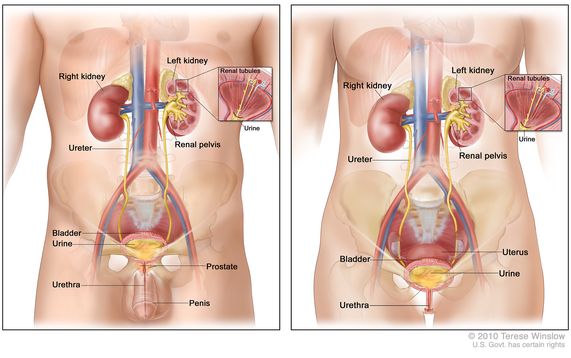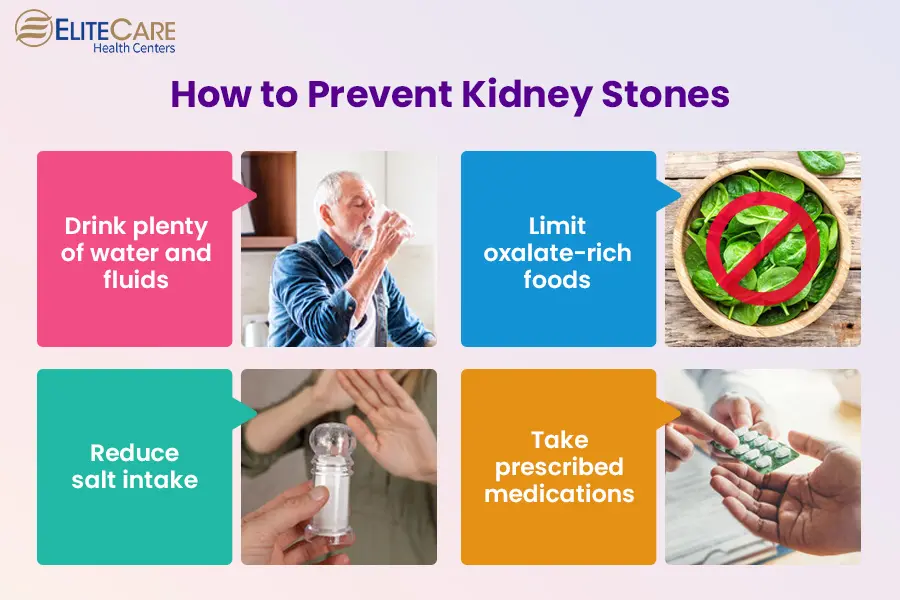Discovering the Manifestations and Causes of Kidney Stones in Contrast to Urinary System Infections: A Comprehensive Overview
The expedition of kidney rocks and urinary system tract infections (UTIs) discloses a complex interplay of symptoms and underlying reasons that warrant cautious evaluation. While both problems can result in hematuria, they offer distinct scientific features and occur from various etiological factors. Comprehending the subtleties of each condition is vital for efficient medical diagnosis and management. What are the essential distinctions in their symptoms, and how might these notify therapy strategies? The solution to these concerns might supply vital insights into the avoidance and treatment of these usual urological issues.
Introduction of Kidney Stones
Kidney rocks, additionally referred to as kidney calculi, kind when particular materials in the pee crystallize and accumulation, bring about the growth of hard deposits within the kidneys. These stones can vary in size, ranging from a grain of sand to a golf ball, and can be made up of numerous products, one of the most typical being calcium oxalate, uric acid, struvite, and cystine. The development of kidney stones is affected by numerous factors, consisting of nutritional habits, liquid consumption, and hereditary tendency.
Signs and symptoms of kidney rocks might consist of serious pain in the back or side, blood in the urine, nausea, and frequent peeing, specifically as the stone moves through the urinary tract. Medical diagnosis typically involves imaging researches such as ultrasound or CT scans, along with urinalysis to determine the stone's make-up.
Therapy choices vary based upon the dimension and kind of stone, as well as the extent of signs and symptoms (Kidney Stones vs UTI). Little stones might pass naturally with increased liquid intake, while larger stones may require clinical interventions such as lithotripsy or medical elimination. Understanding the pathophysiology and threat aspects connected with kidney rocks is necessary for efficient prevention and monitoring
Introduction of Urinary System Infections
Urinary system infections (UTIs) prevail microbial infections that impact any kind of part of the urinary system, consisting of the kidneys, ureters, bladder, and urethra. They mostly happen when bacteria, usually from the intestinal system, enter the urinary system, bring about inflammation and infection. UTIs are classified into 2 major types: straightforward and difficult. Uncomplicated UTIs typically occur in healthy people with typical urinary system tracts, while challenging UTIs might occur in people with underlying conditions, such as architectural abnormalities or jeopardized body immune systems.
The prevalence of UTIs is significantly greater in females than men, mainly because of physiological distinctions, such as a shorter urethra. Risk elements consist of sex-related task, particular contraceptive methods, urinary retention, and dehydration. The diagnosis of UTIs is normally validated via pee tests, which may reveal the presence of bacteria, white blood cells, or red blood cells.

Signs of Kidney Stones
The discomfort connected with kidney rocks can show up in numerous methods, commonly leading individuals to seek medical focus. Among the most common symptoms is extreme discomfort, normally localized in the lower back or side, which may emit to the abdominal area or groin. This pain, frequently referred to as sharp or cramping, can take place unexpectedly and may fluctuate in strength.
In addition, individuals might experience hematuria, or blood in the pee, which can range from microscopic quantities to visible discoloration. This signs and symptom may be accompanied by adjustments in urinary habits, such as raised frequency or urgency, along with pain during peeing. Queasiness and throwing up are likewise prevalent, usually resulting from the body's reaction to extreme pain.
In some situations, people may experience high temperature and cools, particularly if a second infection develops because of the blockage triggered by the rocks. Overall, the combination of serious pain, hematuria, modified urinary system patterns, and gastrointestinal signs can provide considerable understanding into the presence of kidney stones, necessitating prompt medical examination and treatment. Comprehending these signs and symptoms is essential for timely medical diagnosis and reliable management of the condition.
Signs of Urinary System System Infections
Infections within the urinary system tract frequently provide a variety of distinct symptoms that can considerably affect life. One of the most usual symptoms include a persistent urge to urinate, typically gone along with by a burning experience throughout peeing, recognized as dysuria. People might additionally experience increased regularity of peeing, generating tiny quantities of pee each time.
Other remarkable symptoms include foul-smelling or over cast pee, which might suggest the existence of germs or pus. In many cases, urine may show up pink or red as a result of the existence of blood, a problem referred to as hematuria. Furthermore, individuals may experience pelvic discomfort or stress, which can additionally worsen the feeling of urgency.
Systemic symptoms might additionally materialize, such as fever, chills, and exhaustion, specifically if the infection has actually ascended to the kidneys. It is necessary to recognize these signs and symptoms early, as unattended urinary system tract infections can lead to extra serious problems. Kidney Stones vs UTI. Prompt clinical focus is suggested when these symptoms are observed, allowing for suitable diagnostic examination and therapy to minimize discomfort and stop additional health problems
Reasons of Each Condition
Regularly, kidney rocks published here and urinary system infections occur from distinctive yet sometimes overlapping causes that can influence individuals in a different way. Dehydration, not enough fluid intake, and high-sodium diet plans can aggravate these conditions, promoting formation within the urinary system tract.

Understanding these distinct causes is crucial for prevention and therapy. Kidney Stones vs UTI. While way of living alterations might alleviate the danger of kidney stones, appropriate hygiene and prompt therapy of urinary system tract infections are vital for decreasing their recurrence and associated complications
Verdict
In recap, kidney visit stones and urinary system infections existing unique symptoms and underlying causes. Kidney rocks are defined by severe discomfort and metabolic aspects, while urinary tract infections largely include bacterial infections bring about urinary system urgency and pain. Both conditions can result in hematuria, their development devices vary dramatically. Comprehending these differences is essential for effective medical diagnosis and therapy, eventually enhancing individual end results for those affected by either problem.
The expedition of kidney stones and urinary system system infections (UTIs) discloses a complex interplay of symptoms and underlying reasons that necessitate mindful examination.Urinary system infections (UTIs) are usual bacterial infections that influence any component of the urinary system, including the Website kidneys, ureters, bladder, and urethra.Regularly, kidney stones and urinary tract infections arise from distinct yet occasionally overlapping reasons that can affect individuals differently.In recap, kidney rocks and urinary system infections present unique signs and underlying reasons. Kidney rocks are identified by serious discomfort and metabolic aspects, while urinary system system infections mainly include microbial infections leading to urinary system necessity and pain.